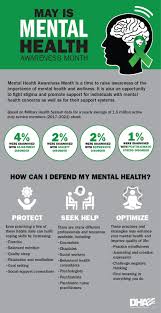Mental health is a critical aspect of overall well-being, impacting how we think, feel, and act. It plays a crucial role in determining how we handle stress, relate to others, and make decisions. Yet, despite its importance, mental health is often overlooked or misunderstood. This article provides an overview of what you need to know about mental health, including its significance, common challenges, and ways to promote mental well-being.
Understanding Mental Health
Mental health refers to our emotional, psychological, and social well-being. It affects every aspect of our lives, from how we interact with others to how we cope with stress. Mental health is not merely the absence of mental illness; it also involves the presence of positive characteristics such as emotional resilience, self-esteem, and the ability to form healthy relationships.
Mental health is a continuum, meaning that it can fluctuate over time based on various factors, including life circumstances, environment, and genetics. Just as physical health requires ongoing attention, mental health needs regular care and maintenance.
Why Mental Health Matters
Quality of Life: Good mental health is essential for enjoying life and achieving fulfillment. It allows individuals to cope with challenges, build meaningful relationships, and pursue personal goals.
Physical Health: Mental and physical health are closely linked. Poor mental health can lead to physical health issues, such as chronic pain, heart disease, and weakened immune function. Conversely, physical conditions can contribute to mental health problems.
Productivity and Performance: Mental health significantly impacts productivity, focus, and decision-making abilities. In the workplace, mental well-being is key to job satisfaction and performance.
Relationships: Mental health affects how we connect with others. It influences communication, empathy, and the ability to form and maintain healthy relationships.
Common Mental Health Challenges
Anxiety Disorders: Anxiety disorders are among the most common mental health issues, affecting millions of people worldwide. They involve excessive worry, fear, or nervousness that interferes with daily life. Common types include generalized anxiety disorder (GAD), social anxiety disorder, and panic disorder.
Depression: Depression is a mood disorder characterized by persistent feelings of sadness, hopelessness, and a loss of interest in activities once enjoyed. It can impact sleep, appetite, energy levels, and overall quality of life.
Stress: While stress is a normal part of life, chronic stress can have serious consequences for mental and physical health. Prolonged stress can lead to burnout, anxiety, depression, and other health problems.
Bipolar Disorder: Bipolar disorder involves extreme mood swings, ranging from manic highs to depressive lows. It can disrupt daily life, relationships, and productivity if left untreated.
Post-Traumatic Stress Disorder (PTSD): PTSD can develop after experiencing or witnessing a traumatic event. Symptoms may include flashbacks, nightmares, and severe anxiety, which can interfere with a person’s ability to function.
Eating Disorders: Eating disorders, such as anorexia, bulimia, and binge-eating disorder, involve unhealthy relationships with food and body image. These disorders can have serious physical and emotional consequences.
Promoting Mental Well-Being
Maintaining mental health requires proactive care, just like physical health. Here are some key strategies for promoting mental well-being:
Self-Care: Prioritize self-care by engaging in activities that reduce stress and promote relaxation. This may include regular exercise, spending time in nature, meditation, hobbies, or socializing with friends and family.
Healthy Lifestyle: A balanced diet, regular physical activity, and adequate sleep are essential for maintaining mental health. These factors contribute to emotional stability, energy levels, and resilience to stress.
Emotional Awareness: Practice recognizing and understanding your emotions. Emotional awareness allows you to respond to situations with greater clarity and control, rather than reacting impulsively.
Social Connections: Strong social support is a protective factor for mental health. Stay connected with friends, family, and community members who can provide emotional support and companionship.
Mindfulness and Stress Management: Mindfulness practices, such as meditation and deep breathing exercises, can help reduce stress and improve emotional regulation. Learning how to manage stress effectively is key to maintaining mental well-being.
Professional Help: Seeking help from mental health professionals, such as therapists, counselors, or psychiatrists, is an important step when dealing with mental health challenges. Therapy can provide valuable tools for coping with stress, anxiety, depression, and other issues.
Overcoming Stigma
One of the biggest barriers to addressing mental health is the stigma that surrounds it. Many people feel ashamed or embarrassed to seek help for mental health issues, which can prevent them from getting the support they need.
Breaking the Silence: Openly discussing mental health helps reduce stigma and creates a culture of acceptance and understanding. Normalizing conversations about mental health encourages others to seek help without fear of judgment.

Education: Educating yourself and others about mental health can lead to a better understanding of mental illness and its impact. Knowledge fosters empathy and reduces harmful misconceptions.
Supporting Others: Be supportive and non-judgmental towards friends or family members who may be struggling with their mental health. Encourage them to seek professional help and offer emotional support when needed.















